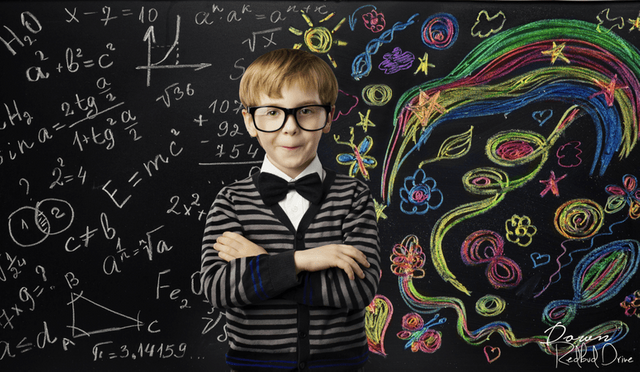Gifted children – they are not what you might think
Intelligence is a complex concept that can be understood in various ways. Different theories describe it through a range of domains. Some models include musical intelligence, physical intelligence, and academic intelligence. Others concentrate on factors like reaction time, which measures how quickly an individual can complete a given task.
Additionally, some theories distinguish between innate abilities, which are present from birth, and learned skills, which develop over time through experience and education.
This article operates on the idea that intelligence encompasses multiple levels of giftedness. These levels include several key aspects:
First, there is our capacity for memory, which refers to how effectively we can store and recall information.

Second, the ability to recognize patterns is crucial, as it allows individuals to make connections between different pieces of information. Third, acquired knowledge, or what we learn throughout our lives, plays a significant role in shaping our intelligence.
Fourth, the speed of information processing impacts our ability to react quickly to new data or situations. Fifth, general skills, such as reading proficiency, are also important indicators of intelligence.
Lastly, the way we solve problems and the span of our memory—how much we can remember at any one time—are significant contributors to our overall intellectual capabilities.
The Wechsler Intelligence Scale for Children (WISC), now in its fifth edition, is the most recognized intelligence test for children. This assessment includes a diverse set of tasks across various domains, providing a comprehensive picture of a child’s cognitive abilities. The results yield an intelligence quotient, commonly referred to as IQ, which serves as a standard measure of intellectual potential.
High IQ can offer many advantages. Individuals with elevated intelligence are often adept at solving problems by utilizing their acquired knowledge. They excel in recognizing connections and can work efficiently toward their goals.
For those with high IQs, new information typically takes little time to learn and tends to be retained well, leading to a strong foundation of lasting knowledge.
Gifted children exhibit a variety of traits that reflect their advanced abilities. These children often grasp concepts of cause and effect early, seeing patterns where others may not.
They tend to learn new material swiftly, driven by a curiosity for deeper understanding. Many demonstrate early reading skills, often before they even start formal schooling.
Their numerical abilities may surpass those of their peers, and they tend to have an extensive vocabulary. In addition, gifted children usually possess strong long-term memory, allowing them to focus for extended periods.
While these traits are generally viewed as positive, gifted children can face challenges. When their advanced abilities are not recognized or nurtured, they may feel isolated or unhappy. If appropriate support is absent, disappointment can overshadow their talents. This dissatisfaction may lead to negative behaviors, withdrawal, or disruptions, making it challenging for others to see the child's true potential.
This mismatch between cognitive and emotional development is known as asynchronous development. It indicates that while these children can intellectually understand certain concepts, they may not emotionally grasp the implications of those concepts fully.
The expectations placed on gifted children by society can be overwhelming. Adults may project their assumptions based on the child's intellectual abilities, leading to demands that the child has not yet developed the skills to meet.
As a result, these children can experience life in a distinctly different way from their peers.